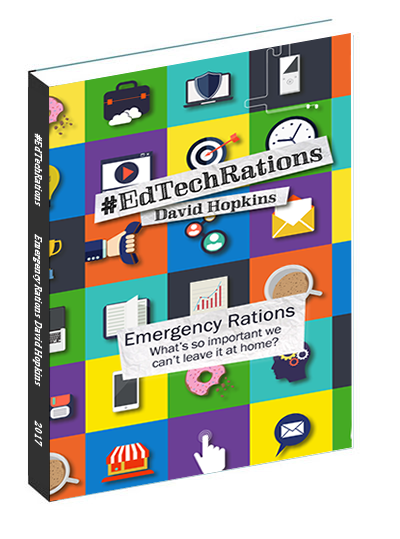Open Badges: Badges for Learning?
I have only taken one certified or official course since I completed my undergraduate degree in 1996, and that was the PG Cert in 2010. Everything else I have done I have done on my own because I (a) wanted to, (b) needed to. But I have nothing to show for it other then the knowledge and experience it has helped me achieve – but how can I show colleagues or employers this knowledge? Why, ‘Open Badges’ is how!
I wonder how many badges I could be displaying about now if Open Badges were around when I started? I bet there are a few!
It wasn’t until I worked through Doug’s presentation below (given to the eAssessment Conference 2012 last week) that I realised just how clever these badges are: they’re images with metadata hard-coded into them including name, description, and details of the issuer (date, origin, name, organisation, etc) as well as the recipient (so you can’t nick someone else’s and pass it off as your own achievement!) and expiry date (!).
- visual representations of achievements, learning, skills, interests, competencies – anything you want the badge to represent,
- a complement to traditional education ‘certification’,
- capable of accommodating formal or informal pathway for learning,
- representative of hard & soft skills, peer assessment, and ‘stakable lifelong learning’,
- snapshots of learning wherever or however it occurred,
- ‘stealth assessment’!
I like Doug’s work and agree that (on slide 17/18 above) open badges are not an “either/or” decision when considering degrees, certificates, or diplomas, but “both/and”.

If you’re at all interested on how we “get there” (“there” is the open badges displayed, for example, on a LinkedIn profile – above) then check out slide 23 for an excellent graphical representation of the ‘open badge infrastructure’.
I for one would love to be able to show my learning experiences in this way, and will be keeping an active eye on the developments of Open Badges.


















Great! Thanks for the post and highlighting my presentation, David. :-)
No problem, I’m liking the theory and application of what they are and how we can use them to show informal learning as well as other aspects of formal education and/or programmes of study.
Have you heard of ‘Lemontree’ – the game for University of Huddersfield Library based on check-in services?
These two links might help: http://librarygame.co.uk/ and http://www.walkingpaper.org/4398
While this is different as it’s obviously linked to location-based check-in I can see how this could be linked to learning activities and open badges (or am I barking mad?)
All the best, David
Hi David, so that’s really interesting from a gamification point of view. I’d be really interested to give it a go to see what it’s like in practice.
On the badges front, you can badge anything you like. You could give badges to people who comment on your blog. You could give badges to people who complete PhDs. You could give a ‘best Granny ever’ badge to your grandmother.
What’s interesting about badges, much as with gamification (which is related, but distinct) is the *design* behind them. You’re absolutely right in that organisations like Foursquare use badges to encourage a certain type of behaviour (check-ins) but there’s *all sorts* of ways you can use badges.
Check out the PDFs on this post, for examples: http://dougbelshaw.com/faq/2011/11/09/examples-of-using-badges-to-credentialize-learning-openbadges-dmlbadges/
Cheers Doug – I’m following the growth of badges with interest, I just hope their growth becomes more meaningful with use (activity- and learning-based) and not just location-based.
All the best, David
Really great presentation! I read about this project some months ago a totally forgot about it. Now I see it got out of lab and rally works! I got my first badge!:)
I think this is a great idea that could really take off if the right issuers were on board.
Doug, Thanks! Great idea and I saw a similar and perhaps better approach here http://lpc.2elearning.com/index.htm the Learning Professional Certificate program that tracks and rewards all that informal knowledge and know-how you gathered. Best, David
Really excited to see how this could be applied to those interested in undertaking and completing educational development activities as a means of ‘charting’ their CPD.
Link the Open Badge framework into Blackboard (other VLE’s are available) and use them to showcase course or activity design, employ for students to showcase a wallet / backback of collected ‘badges’ from a series of pedagogic and curricular activities earned throughout their studies.
Read the Mozilla and Blackboard press release here:
http://www.blackboard.com/About-Bb/News-Center/Press-Releases.aspx?releaseid=122697
David